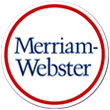daymarks (region B)
System B combines lateral and cardinal marks. It is the opposite of system A, in which starboard marks are red and port marks are green.
lateral mark 
Red or green buoy that indicates the port or starboard limits of the channel.
safe water mark 
Buoy signaling that the water is navigable.
secondary channel 
Navigation lane with beacons that is longer or more difficult than the preferred channel.
preferred channel 
Navigation lane with beacons; it is the shortest and safest way to a harbor or for navigating near a coast or through a waterway.
isolated danger mark 
Buoy marking an isolated danger zone beyond which the waters are navigable.
East cardinal mark 
Buoy with two base-to-base topmarks that is placed to the east of a danger zone.
South cardinal mark 
Buoy with two topmarks pointing downward that is placed to the south of a danger zone.
pillar buoy 
Floating beacon with a pylon-shaped superstructure.
conical buoy 
Floating beacon with a cone-shaped superstructure.
spar buoy 
Long tubular buoy used in harbors and in waters that have no tides.
port hand 
Mark the ship must keep on the left side of its prow as it navigates a channel.
West cardinal mark 
Buoy with two point-to-point topmarks that is placed to the west of a danger zone.
light 
Encoded light beam that serves as a navigation aid at night.
special mark 
Buoy marking an area that is regulated for a specific use (such as military exercises or fishing) or contains submerged obstacles (such as cables or pipelines).
starboard hand 
Mark the ship must keep on the right side of its prow as it navigates a channel.


.jpg)

.jpg)



